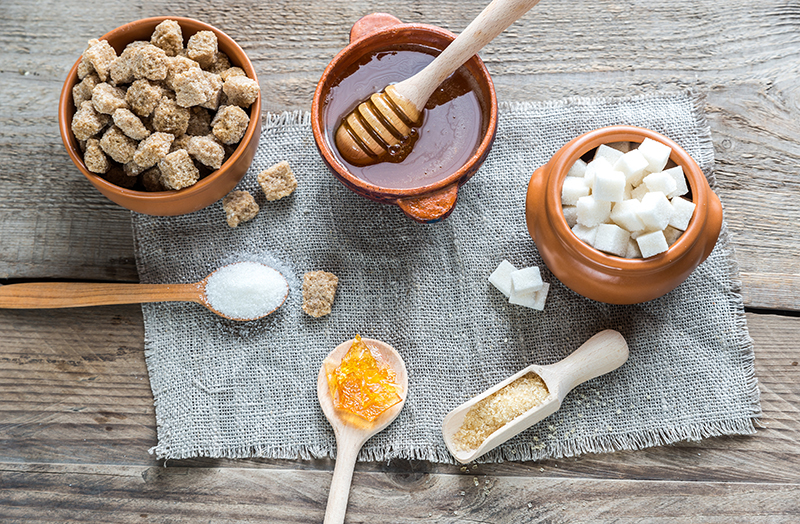- Empty cart.
- Continue Shopping
How to Choose Healthy Sweeteners

Reducing refined sugar intake is a common goal for individuals seeking a healthier lifestyle. Choosing alternative sweeteners can be a key step in achieving this. However, not all sweeteners are created equal, and it’s important to make informed choices. In this guide, we will explore how to select healthy sweeteners that can satisfy your sweet tooth without compromising your well-being.
Understanding Different Sweeteners
Natural Sweeteners
Natural sweeteners are derived from plants or fruits. They are minimally processed and often contain beneficial nutrients.
Examples include:
- Honey: Contains antioxidants, vitamins, and minerals. Choose raw, unprocessed varieties for maximum health benefits.
- Maple Syrup: Rich in antioxidants, vitamins, and minerals. Opt for 100% pure maple syrup without added sugars or flavorings.
- Stevia: A natural sweetener extracted from the leaves of the Stevia plant. It is intensely sweet and requires only a small amount.
Artificial Sweeteners
Artificial sweeteners are synthetic sugar substitutes that are much sweeter than sugar. They are low in calories and do not affect blood sugar levels.
Examples include:
- Aspartame (brand names: Equal, NutraSweet): Commonly used in diet sodas, chewing gum, and sugar-free products.
- Sucralose (brand name: Splenda): Heat-stable and suitable for cooking and baking. It is often used in processed foods and beverages.
- Saccharin (brand names: Sweet’N Low, Sweet Twin, Sweet’N Low): One of the oldest artificial sweeteners. It is highly stable and often used in processed foods.
Factors to Consider When Choosing Sweeteners
Glycemic Impact
Consider how a sweetener affects blood sugar levels. Low-glycemic sweeteners like stevia, erythritol, and xylitol have minimal impact on blood sugar and insulin levels.
Nutritional Content
Natural sweeteners like honey and maple syrup contain small amounts of vitamins, minerals, and antioxidants. While they are still forms of sugar, they offer more nutrients than refined sugar.
Potential for Overconsumption
Some artificial sweeteners are much sweeter than sugar, which can lead to a heightened preference for very sweet foods. This may make it harder to enjoy naturally sweet flavors.
Individual Tolerance
Some people may have sensitivities or allergies to certain sweeteners. For example, individuals with allergies to ragweed may also be sensitive to stevia.
Healthy Sweetener Options
Erythritol
A sugar alcohol with a low glycemic index. It is virtually calorie-free and does not spike blood sugar levels. Erythritol is naturally found in small amounts in fruits like grapes and pears.
Monk Fruit Extract
Derived from the monk fruit, this natural sweetener is intensely sweet and contains antioxidants. It does not impact blood sugar levels.
Coconut Sugar
Made from the sap of coconut palm trees, coconut sugar contains small amounts of nutrients like iron, zinc, and potassium. It has a lower glycemic index than refined sugar.
Moderation is Key
Regardless of the sweetener you choose, moderation is crucial. Even healthy sweeteners should be consumed in reasonable amounts as part of a balanced diet. Remember, a diverse and nutrient-rich diet is the foundation of a healthy lifestyle.
In conclusion, choosing healthy sweeteners is a smart step towards reducing refined sugar intake and supporting overall well-being. By considering factors like glycemic impact, nutritional content, and individual tolerance, you can make informed choices that align with your health goals. Remember, there is no one-size-fits-all approach, so it’s important to find sweeteners that work best for you and your unique dietary needs.








